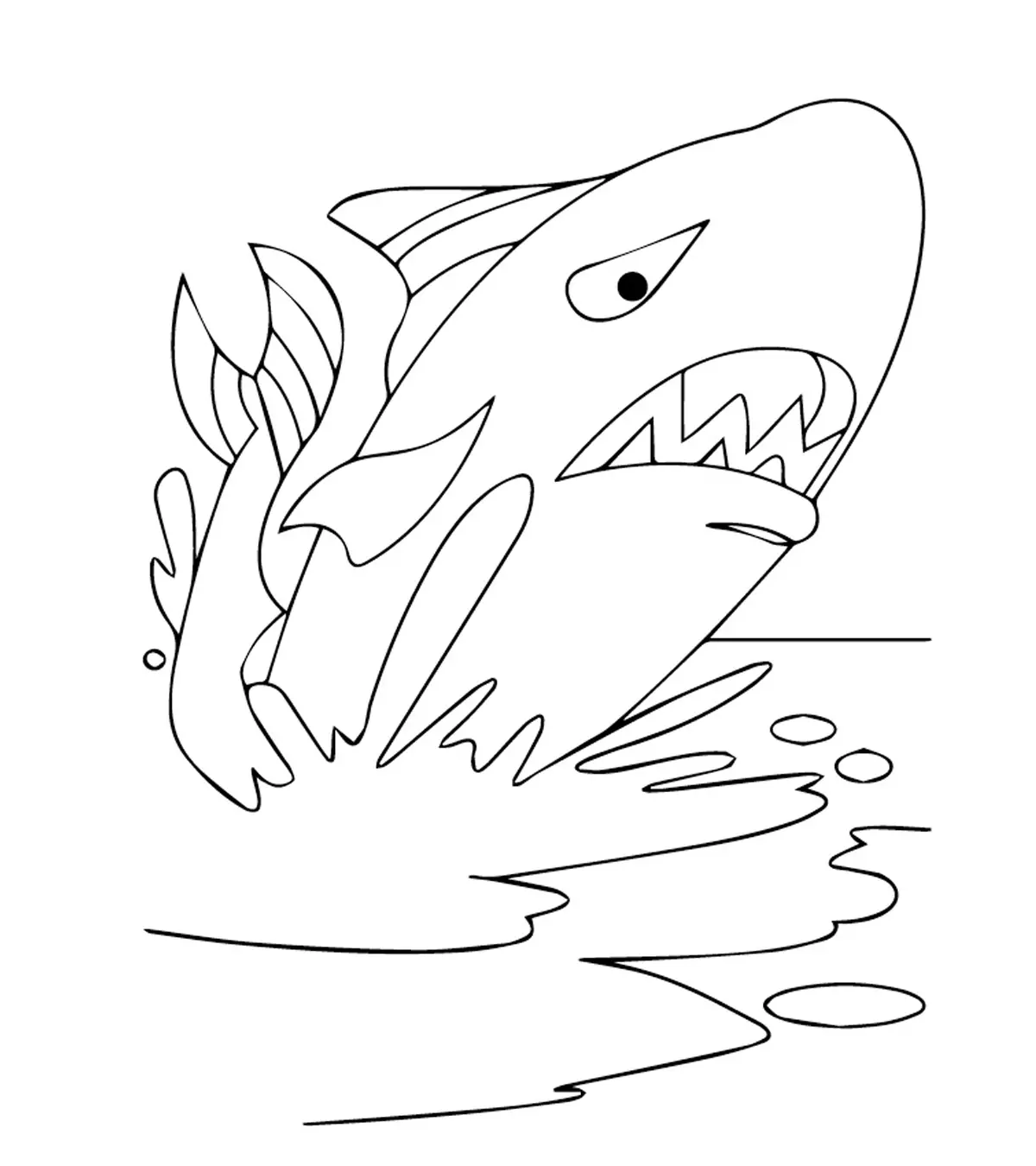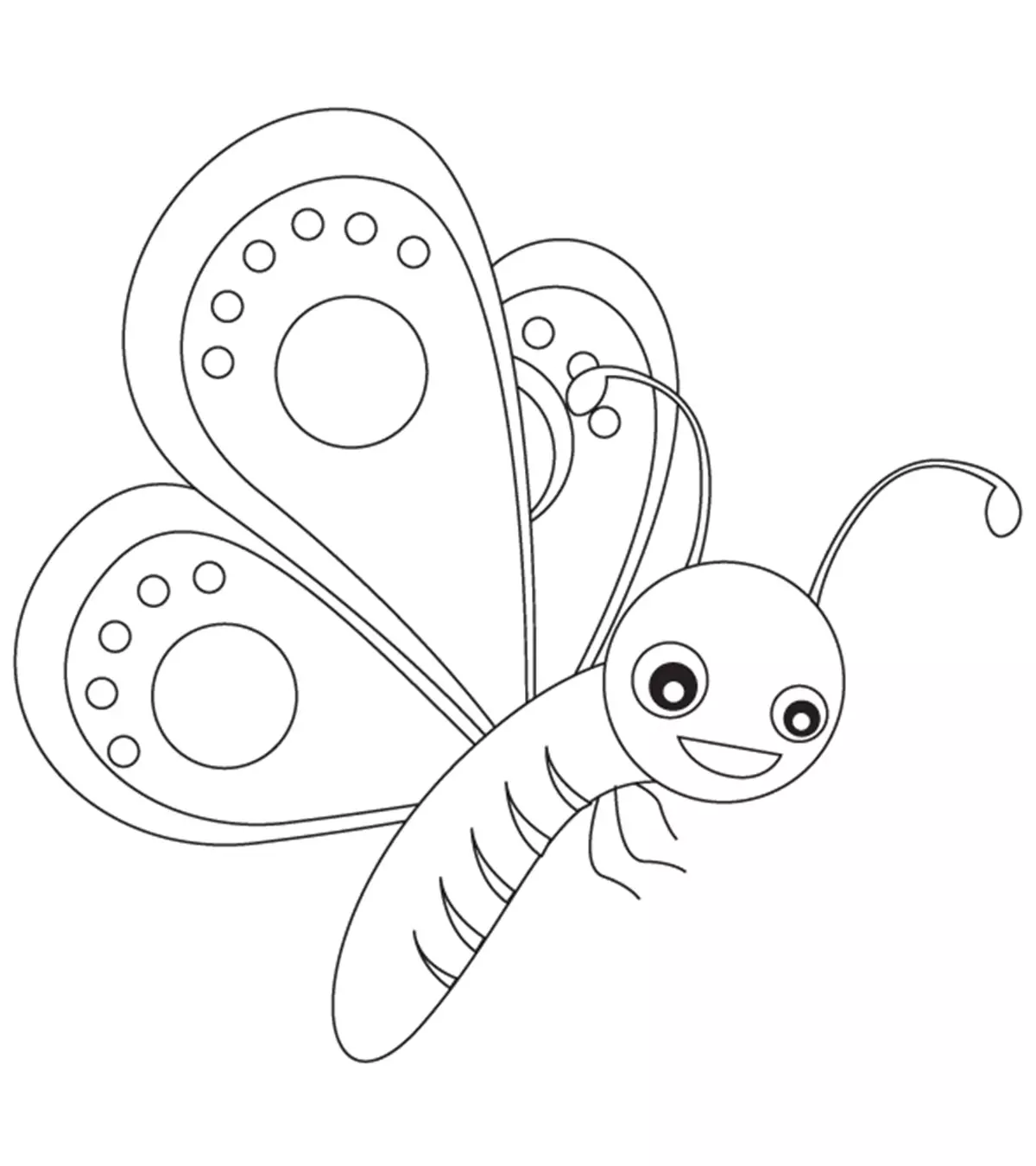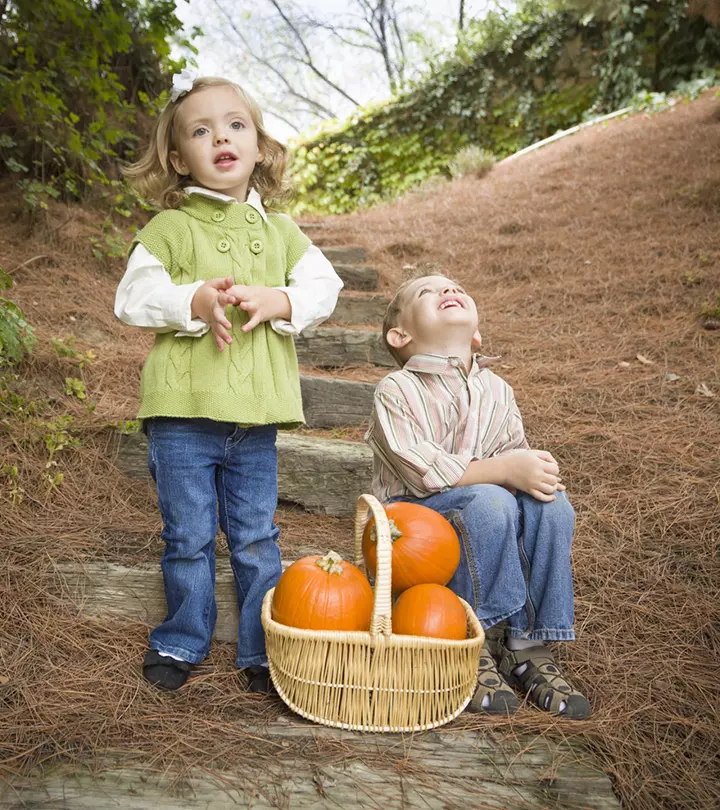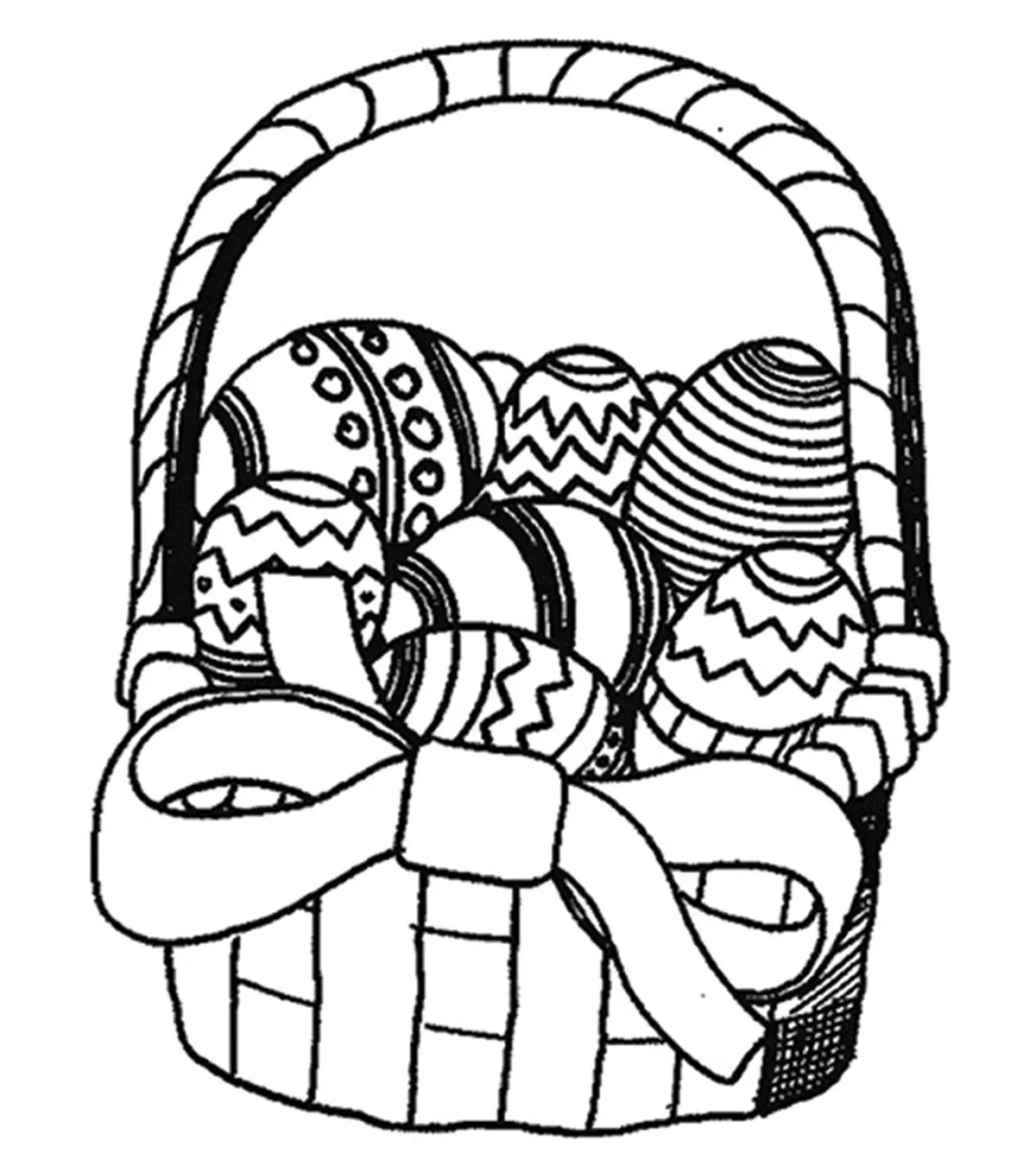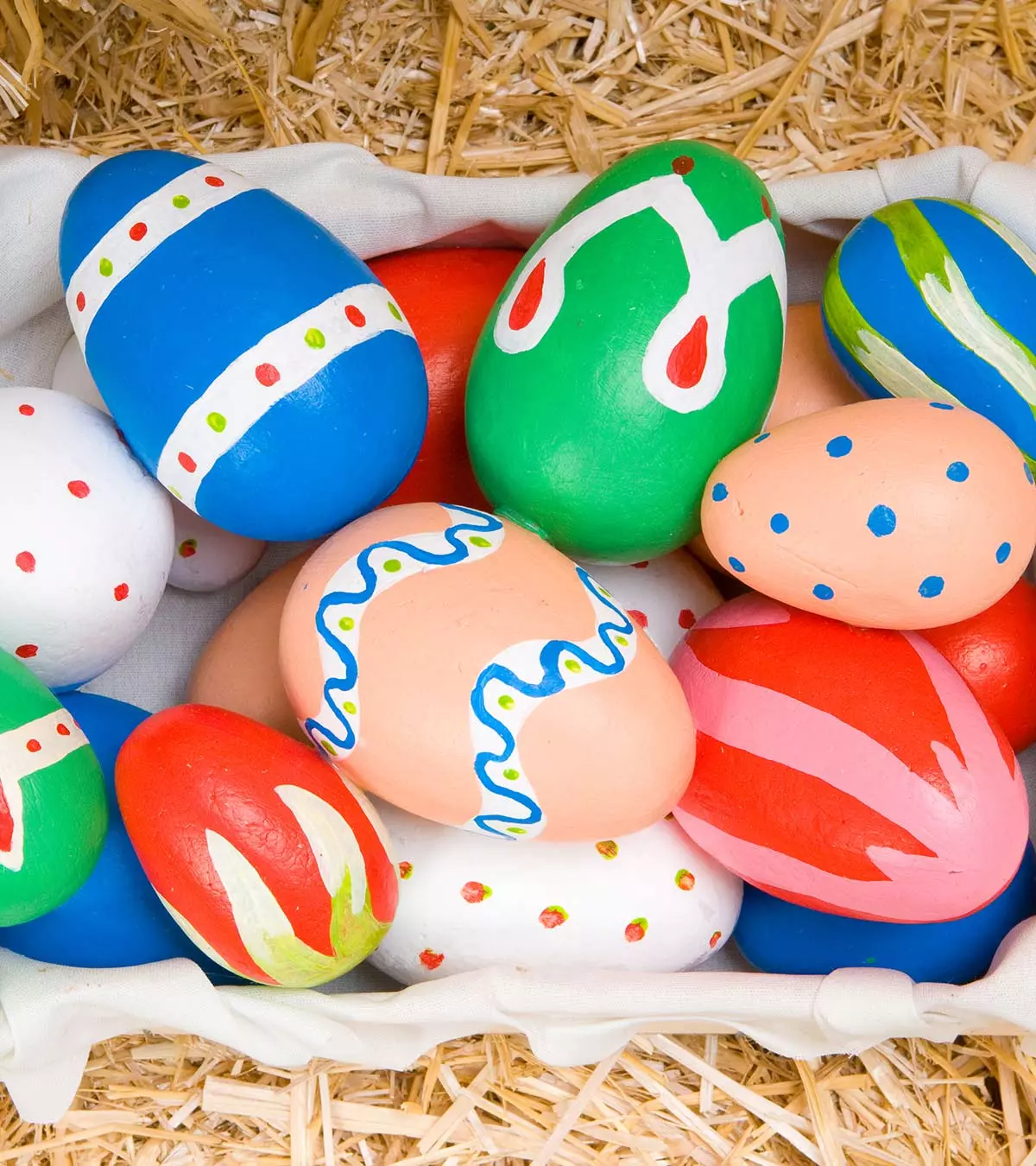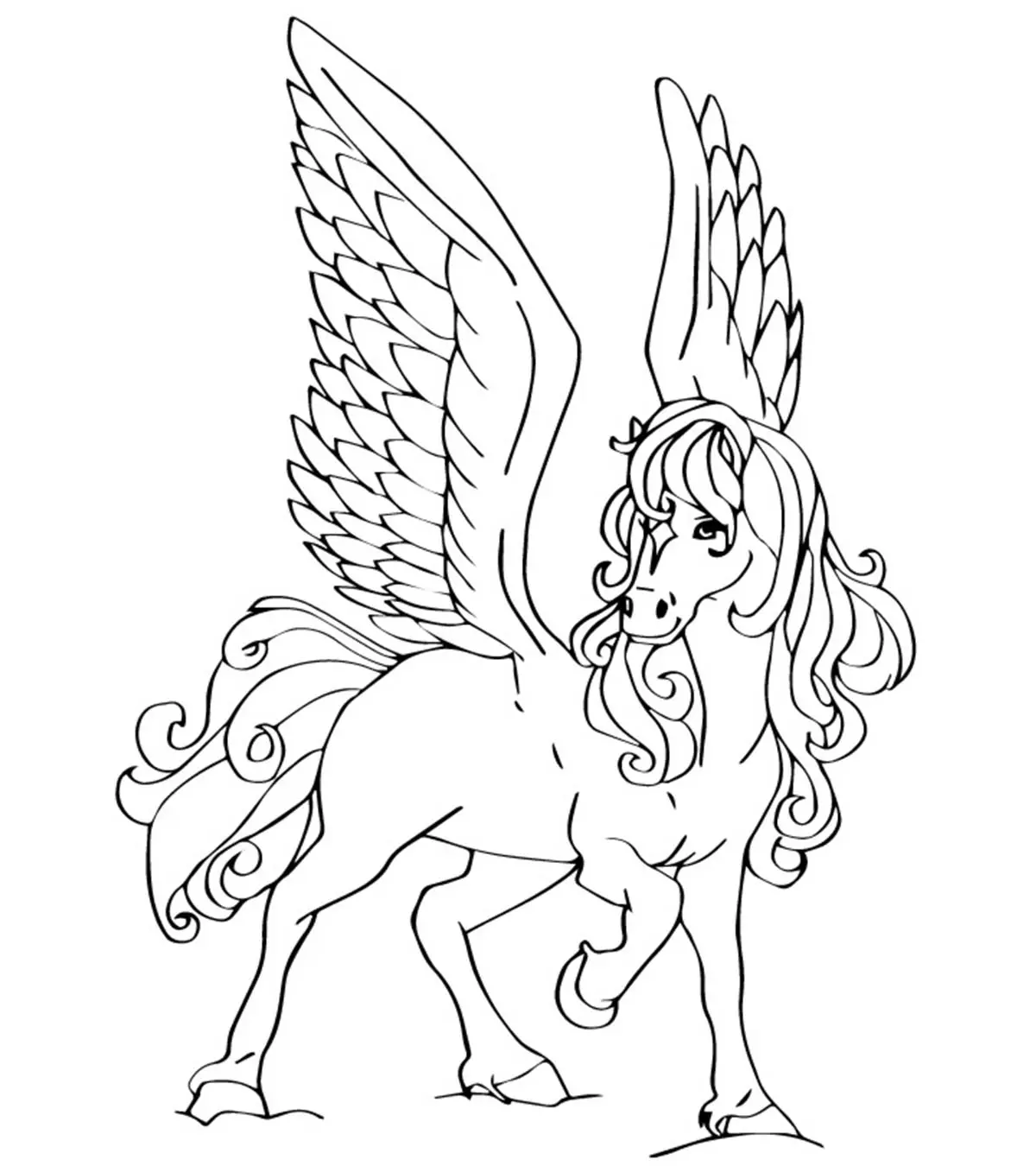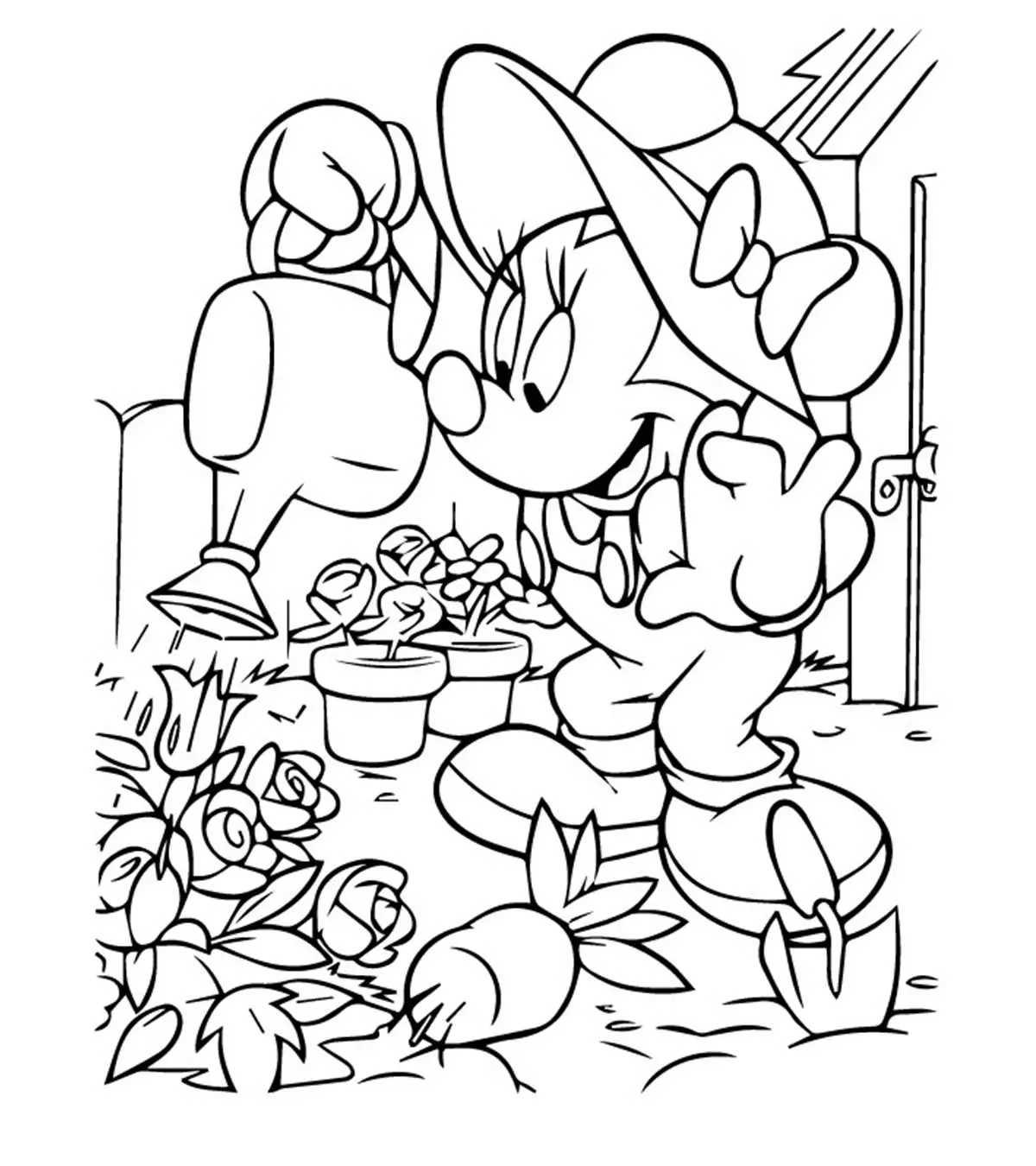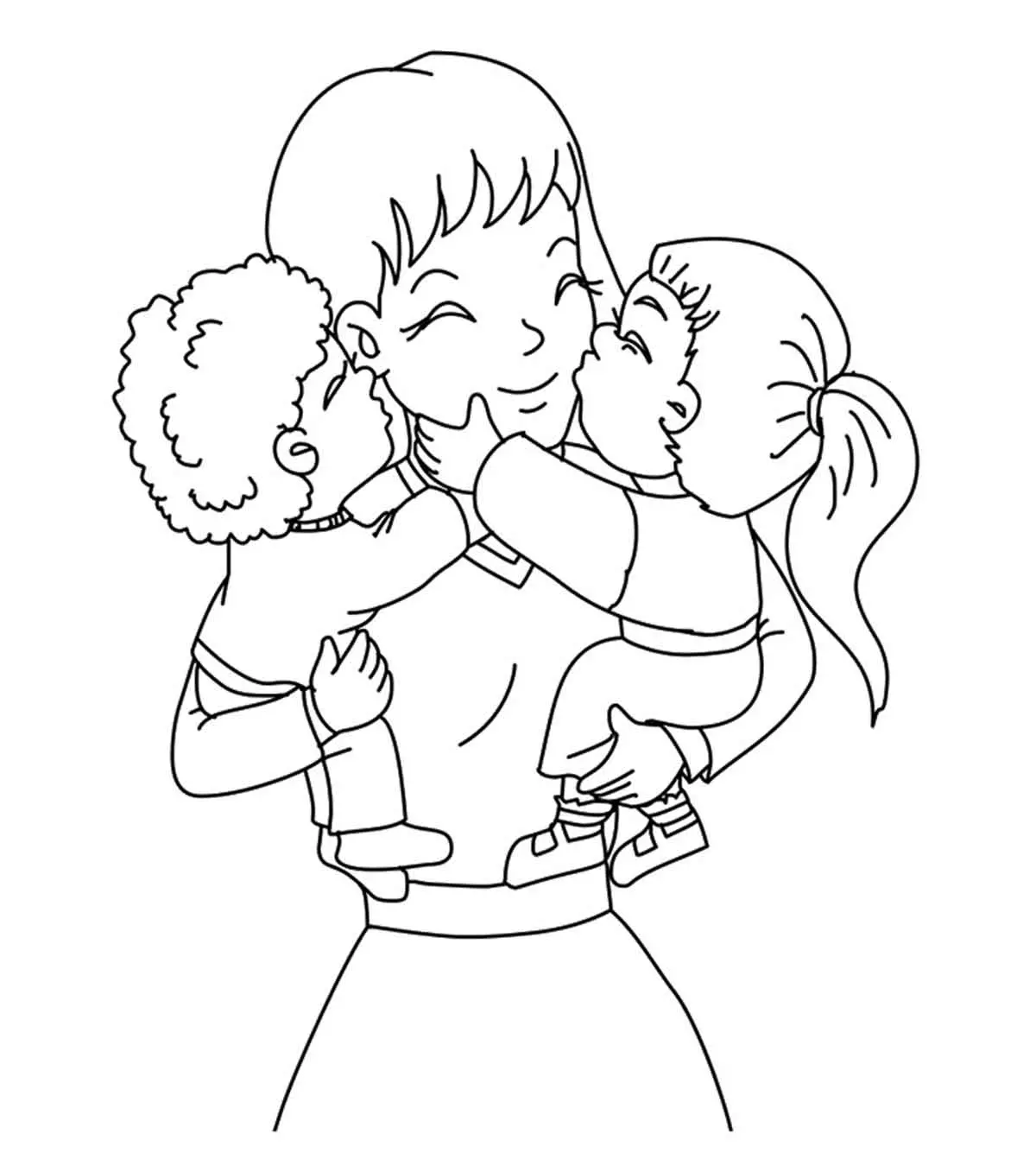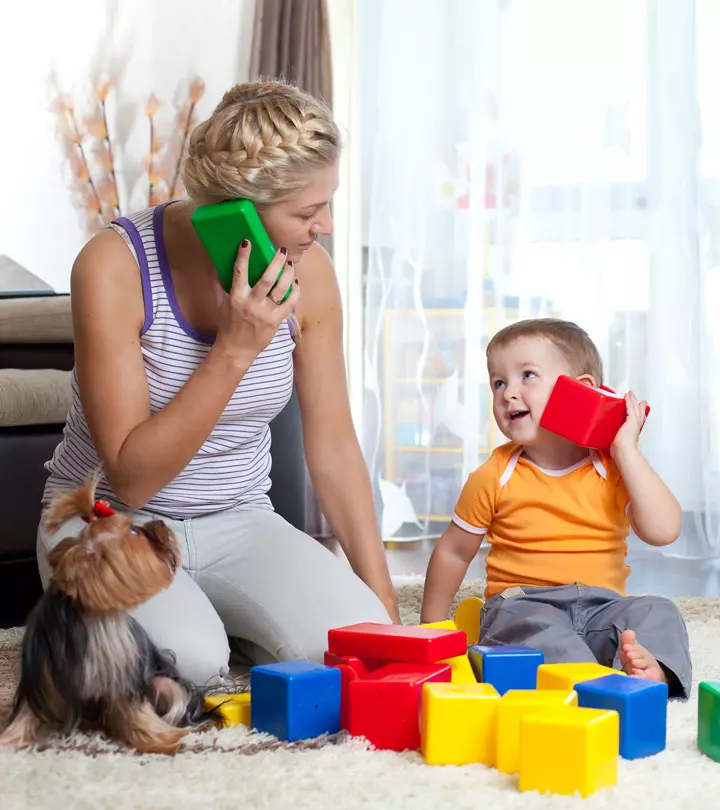
Image: ShutterStock
Many young children face the issue of communicating clearly. So, we have brought some language development activities for toddlers to help them learn better. These activities can help them work on their skills while having fun. You can easily teach your child alphabets and other important lessons through these activities. So, read on to know more.
Key Pointers
- Incorporating language development exercises into a child’s daily life can help the child learn better.
- Children typically begin uttering their first words around 12 months old.
- Language development involves five stages: Cooing or pre-talking, babbling, holophrastic, two-word, telegraphic, and later multiword stage.
- To improve your child’s conversational and vocabulary skills, try incorporating activities such as telephone play, puppet games, and ABC matching games.
- Engaging in expressive language activities can significantly enhance your toddler’s language skills.
Top 11 Language Activities For Toddlers
1. Telephone Play
The fun language activity for toddlers can help improve their communication skills. Set up two toy phones in the play area. You can also decorate the phone booth with funky colors, to appeal to your little one’s imagination. Now act as if you are calling him and the phone is ringing. Encourage your toddler to answer the phone. Playing this activity your toddler will learn phone etiquettes and improve his conversation skills (1).
2. Puppet Game
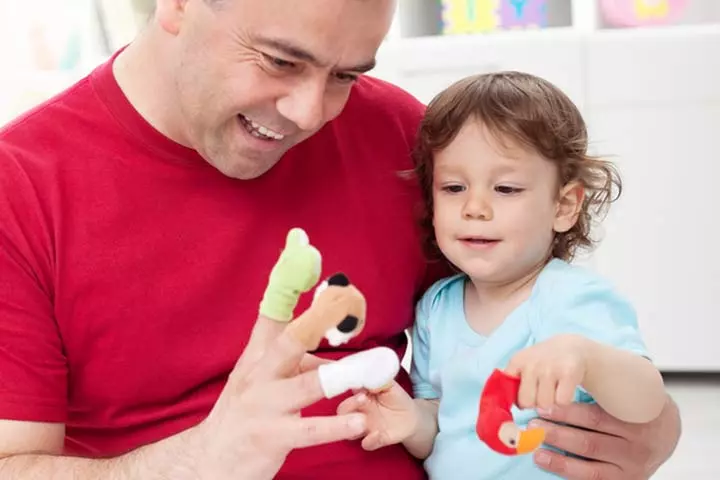
Image: Shutterstock
Buy some soft toys, dolls or puppets for your toddler. Make him converse with these imaginary friends and polish his communication skills in a fun way! (2)
3. ABC Matching Game For Phonetic Learning
Write the alphabets on a small piece of cardboard paper and ask your toddler to color them. Cut out pictures from a magazine and keep them aside. Ask your toddler to match the alphabets with the beginning sounds of the objects in the pictures. The activity uses the play way method to teach your toddler his letters phoneticallyiA systematic study of how humans produce speech sounds . This activity boosts cognitive skills by helping toddlers connect letters with sounds, a key step in building early literacy.
4. Singing Together
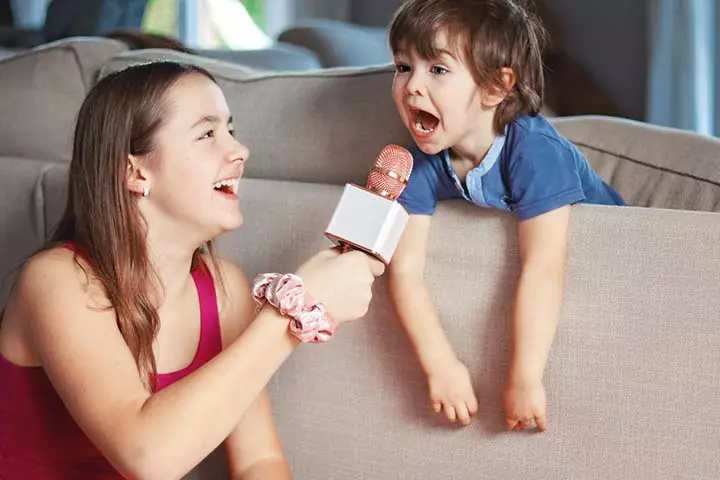
Image: IStock
Singing is a fun activity that you can do as a family. It will help your toddler enjoy working on his language skills. You can also use this play way method to introduce him to nouns, adjectives, and verbs!
5. Places And Things:
Here are other activities to encourage the toddler to speak. Point out different objects at your home and ask your toddler to name them. It will help your toddler improve his vocabulary without much effort. You can play this game in different settings, including the garden and supermarket, pointing and naming other items you see.
 Point to consider
Point to consider6. Complete The Sentence
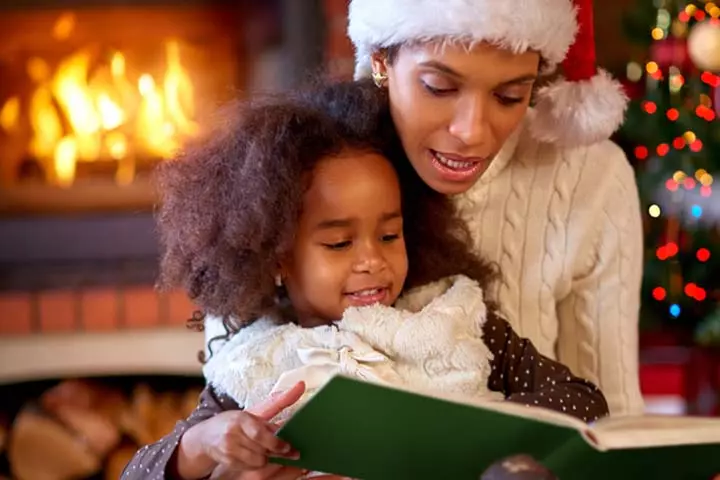
Image: Shutterstock
The simple activity encourages your toddler to frame complete sentences. If he asks for a banana, you can ask him “Do you want a banana?” Encourage him to answer in a complete sentence. It will help your toddler learn to string the words together to make coherent conversation. It will help him learn to express himself better and boost his confidence too!
7. Reading Fun

Image: IStock
Read books to your toddler at bedtime every night. Storytelling is one of the best bonding and articulation activity for toddlers. Read them a story and ask him related questions to improve their listening skills and speech abilities. You can show them the pictures that illustrate the story, which will improve their identifying skills. It can help improve their vocabulary too!
 Quick tip
Quick tip8. Join-The-Dots
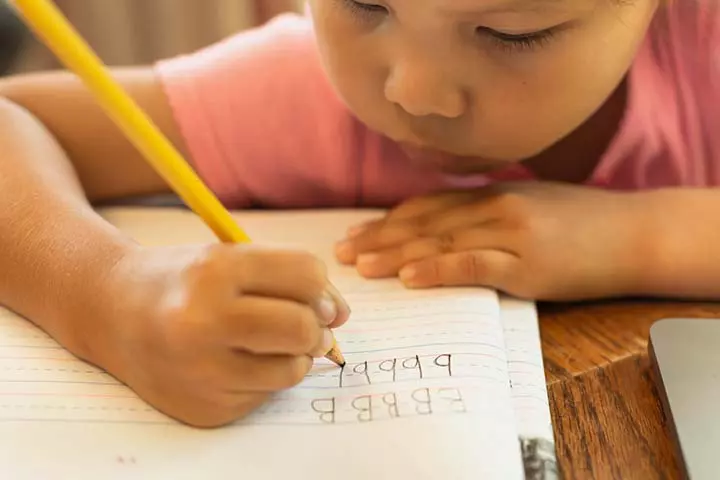
Image: IStock
Draw a dotted outline of the alphabets on sheets of paper. Hand out a new sheet every day to your toddler along with pencil colors in different shades. Help him join the dots for practicing fine motor skills. It will help him identify and write each letter.
These simple activities will surely make learning a lot of fun for your toddler! Try these expressive language activities for toddlers at home and watch your toddler’s language skills improve dramatically. Remember, a little patience and innovation on your part can encourage your toddler to learn better!
9. Building blocks
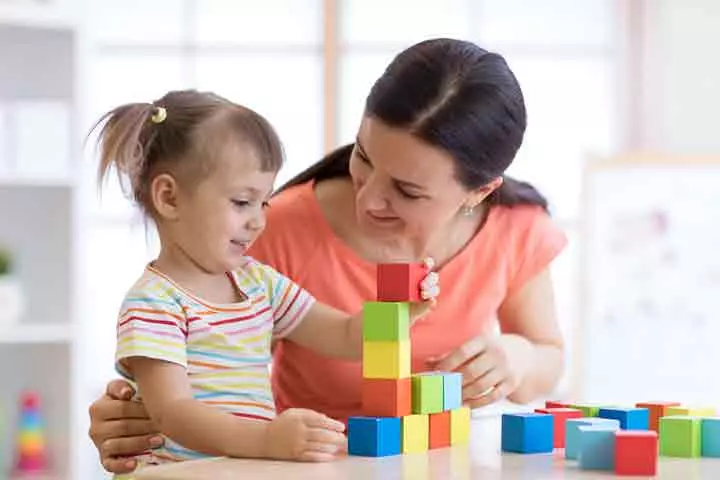
Image: Shutterstock
Building towers not only entertains but also cultivates language skills. Use words like up, down, build, big, and little, to name a few. Introduce numbers and colors, explaining each block addition. Encourage your child to give directions, fostering communication (3) (4).
10. Make animal sounds
Display animal pictures, name the animals, and mimic their sounds. This aids toddlers in practicing language sounds and recognizing sound meanings, vital for early reading (5).
11. Tongue twisters
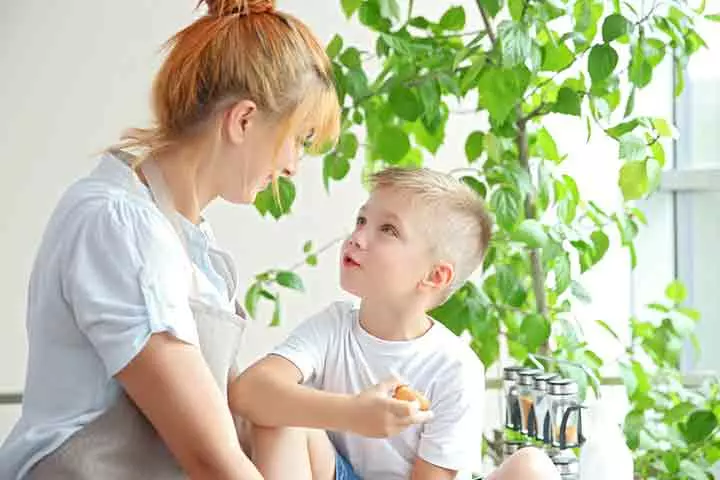
Image: Shutterstock
For a playful approach to phonetics, introduce tongue twisters like ‘She sells seashells by the seashore.’ Rhyming games help children identify different sounds in words and understand that words consist of smaller speech sounds. Progress from simple tongue twisters to more challenging ones to enhance pronunciation and rhythm skills (6).
Frequently Asked Questions
1. Why is language development important to toddlers’ development?
Language development aids in enhancing your child’s ability to communicate their needs, express and understand feelings, think actively, learn new things, solve problems, and form and maintain relationships (7).
2. At what age does a child start to learn a language actively?
Babies begin to babble sounds such as baa, maa, and daa when they are around four months old. They may begin to utter their first words along with their meanings by the time they are about 12 months old (7).
3. What are the five stages of first language development?
The following are the stages of language development (8):
Stage 1: Cooing or pre-talking stage (0-6 months)
Stage 2: BabblingiBabbling is the stage of speech when an infant makes vowel-consonant or consonant-vowel sounds such as ma, um, da (6-8 months)
Stage 3: Holophrastic stageiThe speech stage in which babies follow the “one word = one sentence” pattern to say words like No, Ma, Ya (9-18 months)
Stage 4: Two-word stageiIn this stage, toddlers start using two-word sentences instead of speaking single-word sentences. (18-24 months)
Stage 5: Telegraphic stageiAn early language development characterized by forming sentences where non-essential words are omitted (24-30 months)
Stage 6: Later multiword stageiIn this stage, children speak in long and complex sentences with grammatical structures (30+ months)
4. What are the five components of language development?
The five components of language development include (9):
- PhonologyiA field of linguistics that explores how speech sounds are organized in languages and are used to communicate meanings
- Morphology
- SyntaxiThe arrangement of words and phrases in a specific order to form sentences
- SemanticsiThe study of subtle differences in the meanings of different words and
- PragmaticsiResponding to issues intelligently and realistically, based on real-world concepts rather than abstract ideas
5. What is language arts for toddlers?
Language arts is a subject for toddlers that makes them learn different language forms, including symbols, sounds, gestures, and words. It is done through a step-by-step approach that builds a strong foundation for them at an early age, where they use gesturing and facial expressions.
6. At what age is a toddler considered speech delayed?
Most babies can identify the fundamental sounds of their native language by six months. You can check for the below-mentioned age-appropriate milestones to gauge and consult an expert if your child has delayed speech (10).
- By one year of age – Responding improves as babies answer to requests, simple words and phrases, listen when spoken to, imitating the parents as they learn over one or two words.
- By two years of age – They know body parts, acquire new comments regularly, asking questions, and put two words together for answering questions.
- By three years of age- Toddlers have a word for everything, Use k, g, f, t, d, and n sounds, and can speak and be comprehended by family members.
Communicating is a survival skill and children must start learning languages early. If your child is still in the nascent stage of learning a language, here are a few language activities for toddlers you could try. These cognitive activities for toddlers use exciting ways to engage and encourage your child to learn a language. These simple language skills will improve your child’s speaking ability. Although they do require a little bit of effort on your part, they are worth the effort since a child will grasp reasonable control over their vocabulary skills gradually. So, try out these fun activities today with your child and assist them in learning new languages.
Infographic: Language Activities For Toddlers
Children’s development depends significantly on communication. If your child can understand and speak well, their learning will improve automatically. Every child is unique; if you believe your child is having difficulty with their language, you can involve them in innovative and fun activities. Go through this infographic to explore play-based language activities. Illustration: Momjunction Design Team
Illustration: Top 11 Language Activities For Toddlers
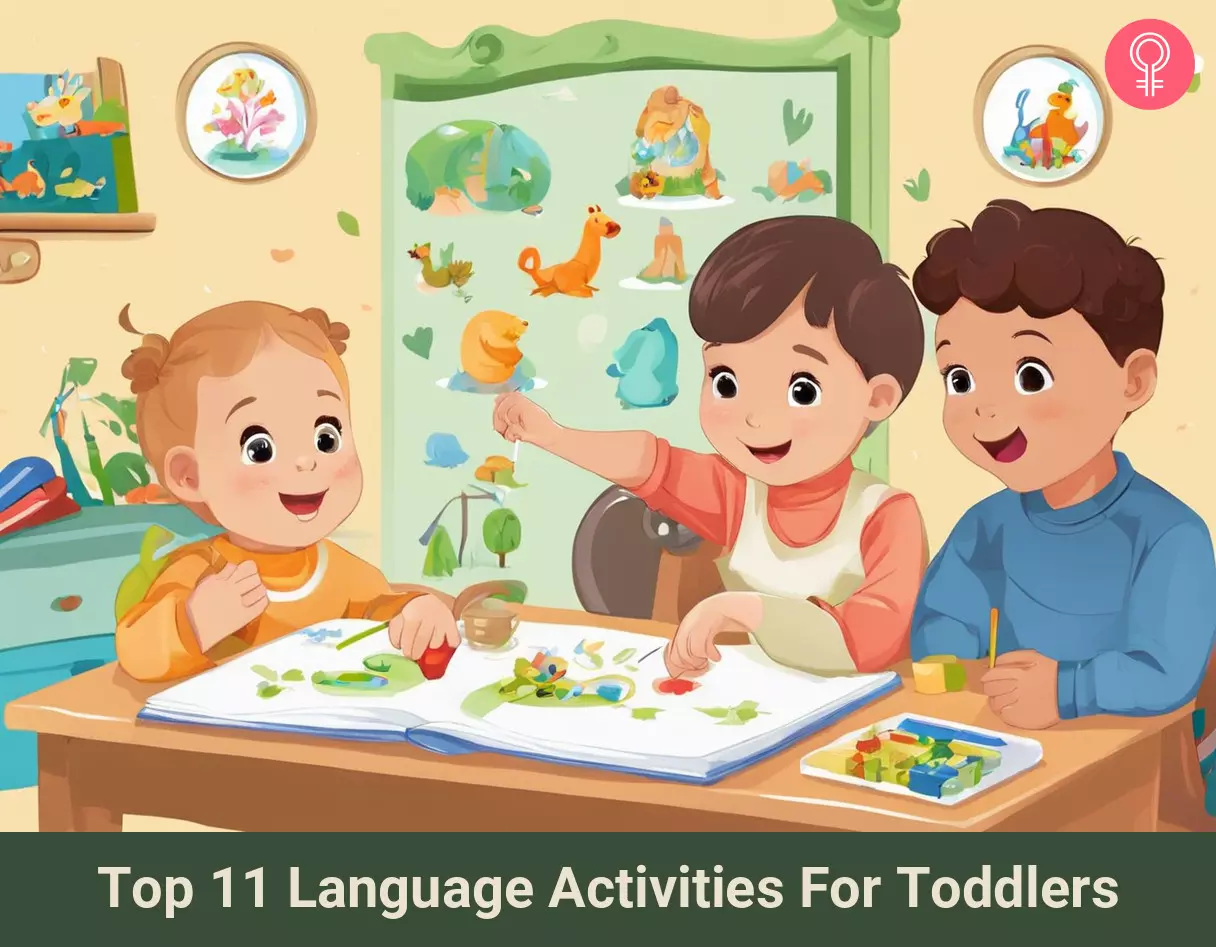
Image: Stable Diffusion/MomJunction Design Team
With engaging activities, you can aid the language acquisition of your toddler. Watch the video to learn more play activities to encourage their language development.
References
- A Place of Our Own.
https://www.pbssocal.org/education/a-place-of-our-own - Using Puppets in Child Care.
https://childcare.extension.org/using-puppets-in-child-care/ - 5 Great Language Development Activities.
https://napacenter.org/activities-for-language-development/ - Activities to Encourage Speech and Language Development.
https://www.texaschildrenshealthplan.org/sites/default/files/2022-07/TCHP_Ideas%20for%20Speech%20Encouragement_K.pdf - Vocabulary: Can You Hear and Make These Animal Sounds?
https://primarilylearning.org/vocabulary-animal-sounds/ - Developing Literacy.
https://raisingchildren.net.au/preschoolers/play-learning/literacy-reading-stories/developing-literacy - Language development in children: 0-8 years.
https://raisingchildren.net.au/babies/development/language-development/language-development-0-8 - Bertaria Sohnata Hutauruk; (2015); Children First Language Acquisition At Age 1-3 Years Old In Balata.
https://www.iosrjournals.org/iosr-jhss/papers/Vol20-issue8/Version-5/F020855157.pdf - The Components of Language and Reading Instruction
https://coe.unt.edu/files/components_of_lang_and_reading_instruction.pdf - Speech and Language Developmental Milestones.
https://www.nidcd.nih.gov/health/speech-and-language - Activities to Encourage Speech and Language Development.
https://www.asha.org/public/speech/development/activities-to-encourage-speech-and-language-development/
Community Experiences
Join the conversation and become a part of our nurturing community! Share your stories, experiences, and insights to connect with fellow parents.
Read full bio of Elisa Yi
Read full bio of Jessica Albert
Read full bio of Rohit Garoo
Read full bio of Vibha Navarathna










